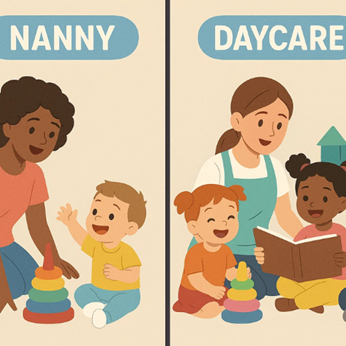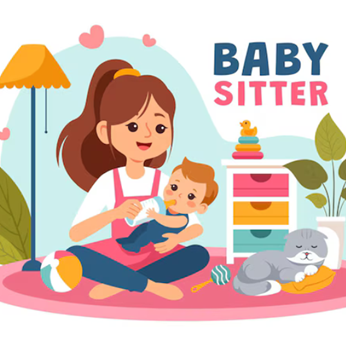9 Subtle Signs That Your Cat Is Sick
It was just the other day that I read an interesting article that the number of cats in US far outnumbers the number of dogs; however cats receive far less frequent veterinary care. Cats display subtle signs of illness and it is best to schedule at least 2 annual examinations for the cat as a preventive measure.
Watch out for the 9 subtle signs that your cat is sick:
1) A cat’s stinky breath could indicate kidney problem, digestive disorder or serious dental disease, while a sweet or fruity smelling breath could indicate diabetes. Make sure to consult your vet, if your cat’s pearly whites emit bad or unusual odors.
2) An increase or decrease in the eating and drinking habits of a cat could indicate something is wrong. Cats may eat and drink more due to conditions like diabetes, hyperthyroidism and inflammatory bowel disease. A decrease in eating and drinking could indicate kidney disease, dental problems or cancer. So it important to note these subtle changes.
3) The change in the activity or nature of a cat could be a powerful indicator of sickness. A decrease in activity could indicate arthritis. Also watch out when a previously clingy cat acts aloof or an independent cat that suddenly turns clingy; it could be a subtle sign of sickness.
4) Watch out for change in appearance and grooming habits of your cat. An unkempt appearance or increased shedding could indicate allergies or hyperthyroidism. Over grooming could indicate stress, allergies and pain.

5) Cats dislike changes and could show various behavioral changes with changes rearranging the furniture, change in family schedule or when a new pet comes and goes. Old cats are more prone to stress and may show signs as missing the litter box. Anxiety also requires professional attention like heart disease and diabetes.
6) Watch out for changes in vocalization like a cat howling overnight; it could be the result of hypertension, hyperthyroidism or anxiety.
7) Watch out for subtle changes in the frequency, color, smell and volume in the poop and pee; an increase in urination could indicate diabetes, while a cat suddenly straining and crying in the litter box or pooping or peeing outside could indicate lower urinary tract infection. Inform your vet immediately.

8) Any unexpected increase or decrease in weight without change in appetite could indicate sickness of your cat; cats with hyperthyroidism and diabetes may lose weight even though they eat more.
9) A change in the sleeping habits like catnapping to suddenly awakening in the night could indicate pain or illness, most probably associated with old age.
To conclude cats are very subtle creatures, with the most subtle changes indicating that a cat is sick; a smart master is one that notes these changes and consults a vet.
Image Courtesy: Bing
Take the next step toward your goals
Share your requirement and find the best care providers in your area
-
Looking for a caretaker’s job? Build your profile and get in touch with families in your vicinity.
-
Discover nannies, babysitters, cooks, housekeepers, pet sitters, and elder care under one roof.
-
Get all the support you need to run a successful care center.
-
Search for appropriate centers near you depending on your needs.
Care Corner Insights: Blog Library

Nanny vs. Daycare in Naperville, IL: What Works Best for Indian Working Couples?
Hey Naperville Parents! Balancing work and family life is no small feat—especially for Indian working couples trying to juggle careers, household responsibilities, and parenting. One of the biggest decisions you’ll face? Choosing between a nanny or

Housekeepers in Sugar Land, TX: Deep-Cleaning Checklists for Indian Homes
Housekeepers in Sugar Land, TX: Deep-Cleaning Checklists for Indian Homes Indian cooking = flavor + spices + love… but also oil splatters and stubborn stains. Time to reset! Degrease stovetops, chimneys, and exhaust fans. Scrub countertops, tiles,

12 Easy After-School Snack Ideas for Kids Who Get Hungry Quickly
School’s out, and the hunger hits hard! If your little ones come home ravenous and ready to raid the kitchen, you’re not alone. After-school snack time is prime time for refueling, recharging, and maybe even sneaking in a little nutrition. So here ar

Vegetarian Home Cook Services in Sunnyvale, CA: North & South Indian Meal Prep for Busy NRIs
Between work, family, and daily responsibilities, finding time to cook fresh meals can be difficult. That’s when a vegetarian home cook service in Sunnyvale makes life easier—bringing authentic North and South Indian dishes straight to your table. T

Hiring a Live-In Nanny in Plano, TX: A Practical Guide for NRI Households
For NRI families living in Plano, TX, raising children while managing work and household responsibilities can feel overwhelming. Many parents find that hiring a live-in nanny provides the right balance of support, convenience, and cultural comfort. U

Daycares in Fremont, CA for Indian Toddlers: Curriculum, Food Policies & Waitlists
You’ve probably met them — the parents at the park chatting about Montessori vs. play-based learning while handing their toddler a homemade paratha. The ones who ask every daycare in Fremont if they serve vegetarian meals. And yes, the ones who have

Babysitters in Jersey City, NJ for NRI Parents: Last-Minute, Weekend & Evening Options
You’ve probably seen them — the parents juggling grocery bags in one hand and a phone call to grandma in India in the other, while trying to keep their toddler from running into the road. The ones who cancel dinner plans because the babysitter bailed

Best Nanny Services in Edison, NJ for Indian Families: Costs, Language, and Cultural Fit
Edison, NJ, is home to one of the largest Indian communities in the U.S., and finding a nanny here often means looking for more than just childcare skills. For Indian families, cultural understanding, language fluency, and traditional values play a b

What Is Helicopter Parenting? How It Affects Children and Ways to Avoid It
You’ve probably seen them. The parents at the playground who shadow every move, wiping invisible germs off the slide before their child touches it. The ones who fill out job applications for their teens. And yes, the ones who email college professors

Are Weighted Blankets Safe for Children? Pros and Cons Explained
Weighted blankets have become a cozy trend in recent years. From helping adults sleep better to calming anxiety, they’ve earned a spot in many households. But when it comes to kids, especially the little ones, parents often ask: Are weighted blankets